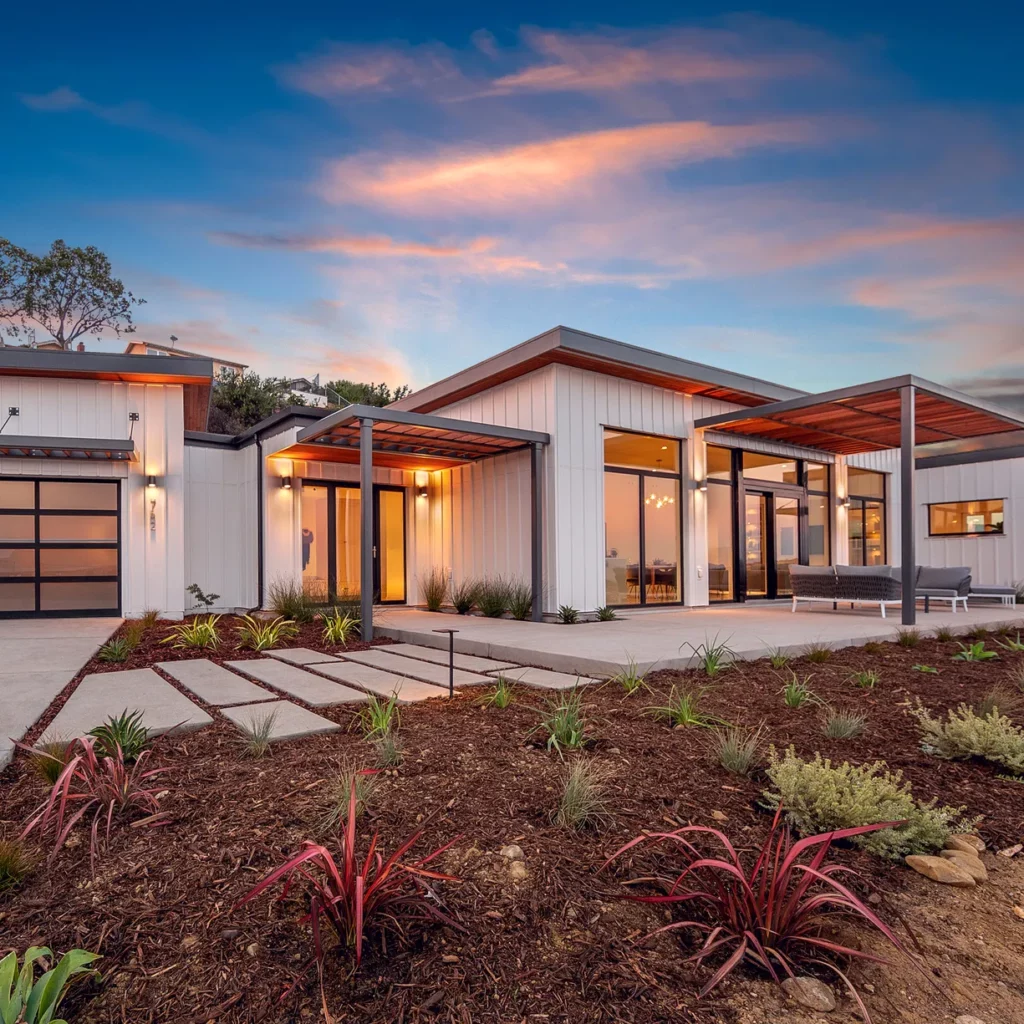What is a Modular Home?

A modular home is a relatively new term in real estate, but it’s not unfamiliar. You might be wondering what is a modular home? First, we’ll explain that in detail. Then, we’ll discuss the pros and cons of investing in modular homes. What are the financial benefits? What is the advantage concerning security, speed, and peace of mind?
We’ll discuss all that in this article. Let’s start.
What is a Modular Home? An Insider Look
What comes to mind when you think about modular homes?
Prefab construction homes, manufactured homes, mobile homes, tiny homes…Yes, all of these terms are used to describe modular homes. But unfortunately, there is some confusion, and most people don’t know the meaning.
A modular home's structure is built inside a factory and installed on the allocated land. Different parts are constructed, assembled, and then given the final form by expert technicians. Unlike mobile homes, you can’t move a modular home. So while you move the structure once (from the factory to land), the house itself is stationary. It’s permanently attached to the lot, just like a traditional residence. So that’s one point about modular homes. They look mobile, but they are not. So if you want to relocate after installing the house, there is only one option…sell your home and buy another one.
So modular homes are suitable. Then why do most buyers not consider them? Modular homes have come a long way since they were first introduced. Unfortunately, early constructions were not up to the mark. You can think of substandard construction, poor material, and a lack of choices which explains why modular homes are not popular. However, things have changed in the last 2-3 decades.
Today modular homes are constructed according to the set standard by IRC. IRC is the International Residence Code, similar to the HUD in the US. So these homes are built in a controlled environment and must comply with the IRC.
Pros & Cons of Modular Homes
After installation, modular homes are like any other property. Your contractors will install appliances, cabinets, furniture, and everything else that belongs in a home. You have a choice, and you can choose the color, design, and layout as per your preference. Modular homes are no longer old-style constructions as you will choose a design suitable for your family and neighborhood. Here are some pros of choosing a modular home:
Stable Property Structure
Modular homes are manufactured in climate-controlled environments. That means rain, flood, weather, or outside circumstances don’t affect the construction quality. Modular homes are often considered better than stick-built properties because of the controlled environment. The structure is made to last and handles harsh weather conditions.
Furthermore, a modular home is installed step-by-step and assembled into the final location. Only a stable structure can endure the movement and installation of parts. On top of that, modular homes offer consistently high quality. You can expect the same level of finishing and quality in every aspect of the house.
Speedy Construction
Modular houses are built on a massive scale. Different parts are manufactured in factories, which results in quick construction. You don’t have to wait for months or years. Instead, you can order your home and have it assembled in a few weeks.
Better Pricing
Modular home construction tends to be less pricey compared to brick homes. One reason is that companies purchase material in bulk. As a result, you won’t be buying materials individually, reducing the material cost. Labor also tends to be less expensive as builders can provide consistent working opportunities to their employees, resulting in a discounted price for the end user.
Energy Efficient
Quality construction results in an energy-efficient product. Most modular homes conserve energy better than traditional homes.
Cons of Purchasing a Modular Home
Land Investment
You need to find a lot for your modular home. You can’t lease the land. You have to buy it, which can be expensive.
Local Regulations Impact the Construction
You have creative freedom, but your home layout must follow the local code. That’s not a disadvantage, but something you need to be aware of.
The Resale Price Can Be Low
Modular homes are gaining popularity, but selling one might be challenging. People are skeptical about the purchase and might negotiate about the quality of the house. In addition, some old modular homes might look cheap because of the inexpensive material used for cosmetic makeovers and appliances. However, old homes require a makeover, just like any property. Rest assured that the home's foundation is built according to IRC, and the house will just need renovation.
What do modular homes look like?
At first, glance, differentiating between a modular home and regular construction is not possible. They both look the same. (An experienced investor can find the difference, but I am talking about the average person here).
Modular homes don’t look like double-wide trailers. Instead, you’ll notice beautiful windows, landscaping, appliances, and everything else you find in a typical home. Many buyers are curious about the appearance of modular homes. First of all, you have control over the appearance. You can choose a design and then get everything assembled according to your choice. In addition, modular homes can be renovated but can’t be changed entirely after the installation.
How much does modular home cost?
The average modular home cost will be $100-$200 per square foot, including installation. So for a 1500 square foot home, your cost will be $150k-$300k. When calculating the price, you need to consider the utilities and land. Prefab concrete foundations are inexpensive alternatives to traditional foundations, costing $18k-$30k. Crawl space foundation costs less but requires more maintenance over the years.
The cost of hooking up the utilities will be $3k-$20k. So that’s the dollar cost. How much time does it cost to build a modular home? Modular homes don’t take too much time, but you can expect to wait 4-9 months for the ready product. The delay time also depends on a few factors, including:
- Local building permits
- Financing
- Customization of modular homes can delay the process, especially if there is a shortage of required material.
Who is a modular home right for?
There will come a time soon when most homes will be “modular.” The construction industry is changing, and building houses off-site is a great way to save time & money. So modular homes are great for anyone looking to save time and some money.
Modular homes are also great if you want to build a tiny house in your backyard. Order the design and structure and have it assembled in your backyard. Your personal life will receive minimum disturbance from your construction plans.
Modular homes are the only option if you’re planning to construct a unit in remote areas, and hiring local builders is not safe or possible.
The Bottom Line: What is a Modular Home?
- Times have changed. Once ignored, a modular home is now recommended home type. Most people have an idea of what is a modular home. But, yes, many of us are not familiar with the technicalities of modular homes. Hopefully, this article gaves you an idea of the different aspects of modular homes constructed today.
- These types of homes are a good investment. But, just like any investment, you must do your due diligence. Talk to lenders, verify the reputation of your builder, and obtain necessary inspections and permits. Then, you should be good to go!
What is a Modular Home: FAQ
Now you know what is a modular home. But is investing in modular homes a good idea? You have more questions? Let’s go through the list of frequently asked questions.
